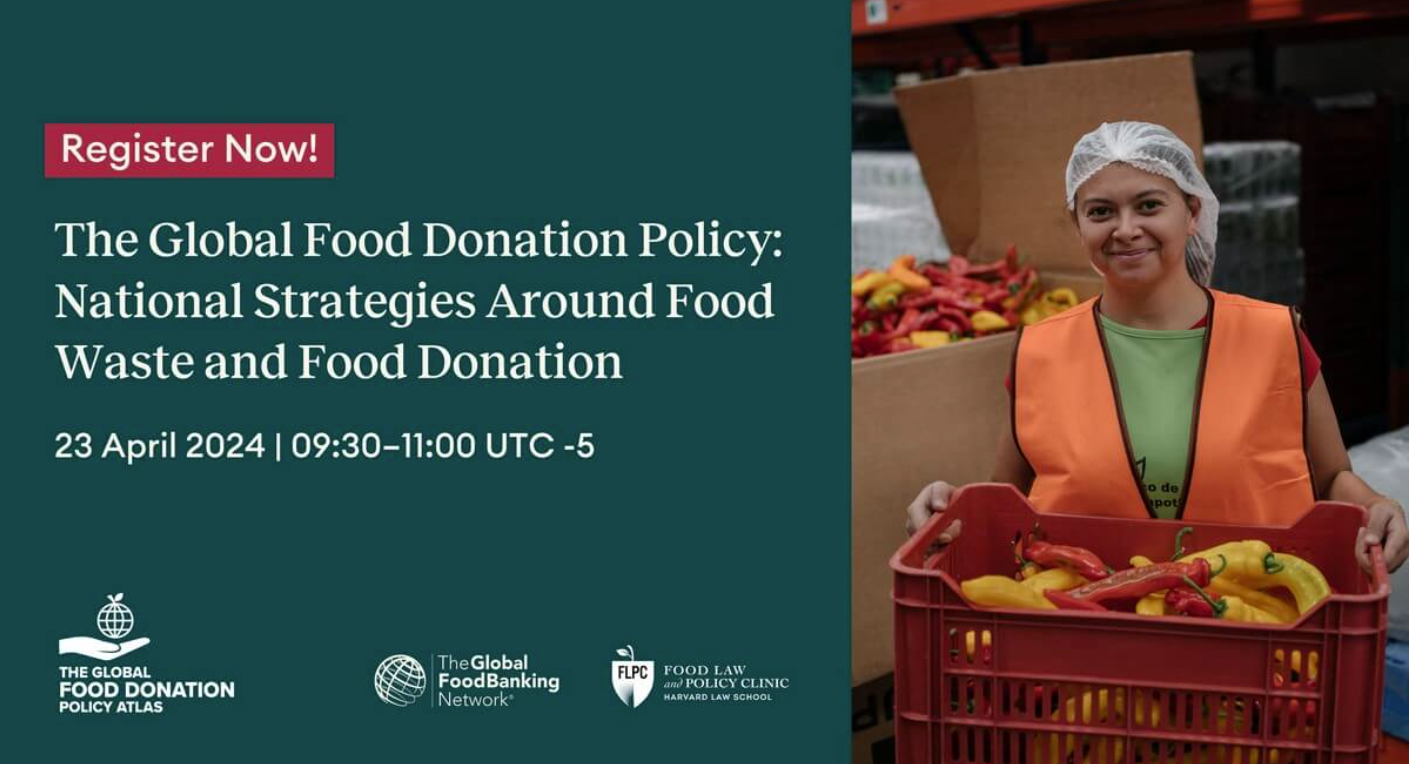
- This event has passed.
Webinar: The Global Food Donation Policy Atlas: National Strategies Around Food Waste and Food Donation
Food loss and waste (FLW) and food insecurity are parallel issues emerging as some of the greatest food system challenges faced today and, as such, are increasingly policy priorities for governments around the world. While an estimated one-third of food produced for human consumption is lost or wasted, more than 820 million people are undernourished and one in nine is food insecure. In many countries, food donation is a popular and logical solution to redirect safe, surplus food into the hands of those who need it most.
Scaling food donation requires aligned incentives and sensible policy to motivate individuals and companies to donate rather than discard surplus food. Some governments have crafted national strategies for reducing food waste, specifically through food redistribution. A well-designed national strategy provides clear targets, feasibility roadmaps, success metrics, and designates actors tasked with meeting the goal to facilitate a coordinated approach to a complex issue.
It is critical to bring awareness to the issue of food waste and how increasing food donation efforts can be key to hit emissions reduction goals. Yet, only 21 countries have included FLW in their nationally determined contribution (NDC) plans, much less food donation.
This webinar will convene stakeholders across the globe in a discussion about the importance of national strategies to reduce FLW and increase food donation.
Date: Tuesday, 23 April 2024
Time: 9:30 a.m. – 11 a.m. ET
Introduction:
- Ambassador Ertharin Cousin, Founder and CEO Food Systems for the Future; Managing Director Good Food Opportunity Fund; Distinguished Fellow Chicago Council on Global Affairs; Visiting Scholar Stanford University Center-Food Security and Environment
Speakers:
- Lana Coppolino Suárez, Associate Manager in the Materials Management Branch, The Environmental Protection Agency, USA
- Pete Pearson, Senior Director, Food Loss and Waste, World Wildlife Fund, USA
Session Notes:
- Following the presentation there will be time for questions from the audience.
- This session will be available in English and Spanish.
- This session will be on the record and a video recording will be available for viewing following the event.
Register here: https://fbli.foodbanking.org/fbli-sessions/global-food-donation-atlas/
